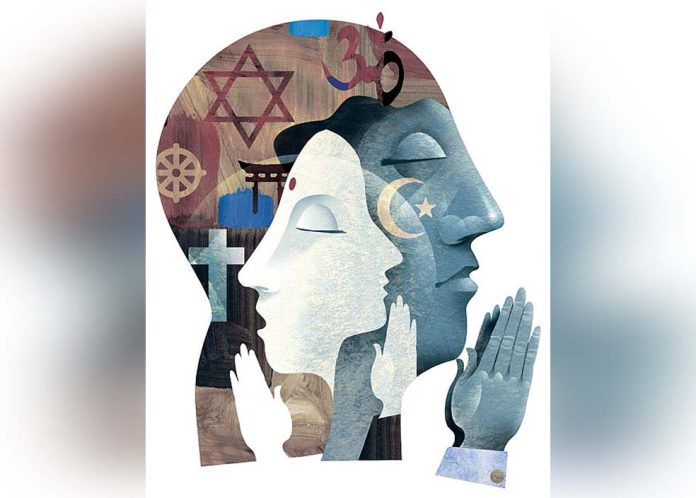Lt Gen Narendra Kotwal (Retd)
Faith is one of the most profound and transformative forces in human existence. It has shaped civilizations, inspired great acts of courage, and provided solace in times of despair. Faith is not merely a religious concept; it is a fundamental human experience that influences our thoughts, actions, and relationships.
Genesis of Faith
The origins of faith are deeply rooted in human history and consciousness. Faith emerges from the innate human need to find meaning, purpose, and connection with something beyond oneself. In early civilizations, faith was expressed through mythology, rituals, and spiritual practices that explained the mysteries of life, death, and the universe.
Religious faith, in particular, finds its genesis in divine revelations, scriptures, and traditions passed down through generations. Hinduism, Buddhism, and other spiritual traditions are built upon profound philosophical inquiries and spiritual experiences. The Abrahamic faiths-Judaism, Christianity, and Islam-trace their origins to divine interactions with prophets such as Abraham, Moses, Jesus, and Muhammad.
Beyond religious contexts, faith originates in personal experiences, upbringing, and cultural influences. A child has faith in their parents’ love and protection. A scientist has faith in the pursuit of knowledge and the consistency of natural laws. Entrepreneurs, leaders, and visionaries operate with faith in their ideas and the possibilities of success. Thus, the genesis of faith is not confined to spirituality alone but extends into all facets of human endeavour.
The Power of Faith
Faith is a force that can move mountains-both metaphorically and literally. It is a source of strength, resilience, and transformation. Faith provides hope in times of adversity. People facing hardships, illness, or personal loss often draw strength from their faith, believing that better days lie ahead. This faith fosters perseverance and helps individuals overcome seemingly insurmountablechallenges. Faith instils confidence in individuals, allowing them to take bold steps even when the future is uncertain. Great leaders, revolutionaries, and pioneers have changed history by acting on faith-faith in their cause, in humanity, or in divine guidance.Faith plays a crucial role in emotional and physical healing. Many spiritual traditions speak of the miraculous power of faith in healing diseases and restoring well-being. Even in psychological contexts, belief in recovery is often a decisive factor in overcoming mental and physical illness.Faith brings people together, fostering a sense of belonging and shared purpose. Religious communities, social movements, and humanitarian efforts often arise from a collective faith in a vision or a higher calling. This unity has led to the establishment of great civilizations, philanthropic efforts, and revolutions that have shaped human history.Faith provides moral guidance, shaping human behaviour and societal norms. Many ethical principles-such as honesty, compassion, justice, and kindness-are deeply rooted in faith traditions. Faith serves as a moral compass that helps individuals navigate complex ethical dilemmas.
Principles of Faith
Faith, regardless of its religious or secular expression, operates on fundamental principles that guide its practice and application.Faith often requires belief in things beyond immediate perception. Religious faith believes in God, the soul, and the afterlife. Scientific faith trusts in unproven theories and the possibility of discovery. Even in personal aspirations, faith means believing in future success before it materializes.Faith involves trust-whether in divine will, the goodness of humanity, or the reliability of a process. It requires surrendering control and embracing the uncertainty of life with confidence that things will unfold as they are meant to.True faith is not passive; it demands action. A farmer plants seeds with faith that they will grow. A leader works tirelessly for a vision they believe in. In spiritual practice, faith is expressed through prayer, meditation, and righteous deeds.Faith is tested in times of hardship. The principle of endurance teaches that faith is not just about believing when things are easy but holding on even when faced with trials and tribulations. Many religious and philosophical traditions emphasize patience as a virtue that strengthens faith.Faith is deeply connected to love and compassion. Faith in humanity inspires kindness. Faith in God nurtures a spirit of forgiveness and grace. Faith in oneself fosters self-love and confidence. The highest expressions of faith often manifest in selfless acts of love.
Faith is a powerful force that has shaped individuals and societies throughout history. Its genesis lies in the human quest for meaning, while its power is evident in its ability to inspire hope, courage, and unity. The principles of faith-belief in the unseen, trust, action, patience, and love-serve as guiding beacons for those who embrace it.Whether in a spiritual, personal, or collective context, faith remains an enduring and transformative force that empowers individuals to transcend challenges, strive for greatness, and connect with something greater than themselves. It is the bridge between uncertainty and assurance, between struggle and victory, and ultimately, between the human and the divine.
Trending Now
E-Paper


